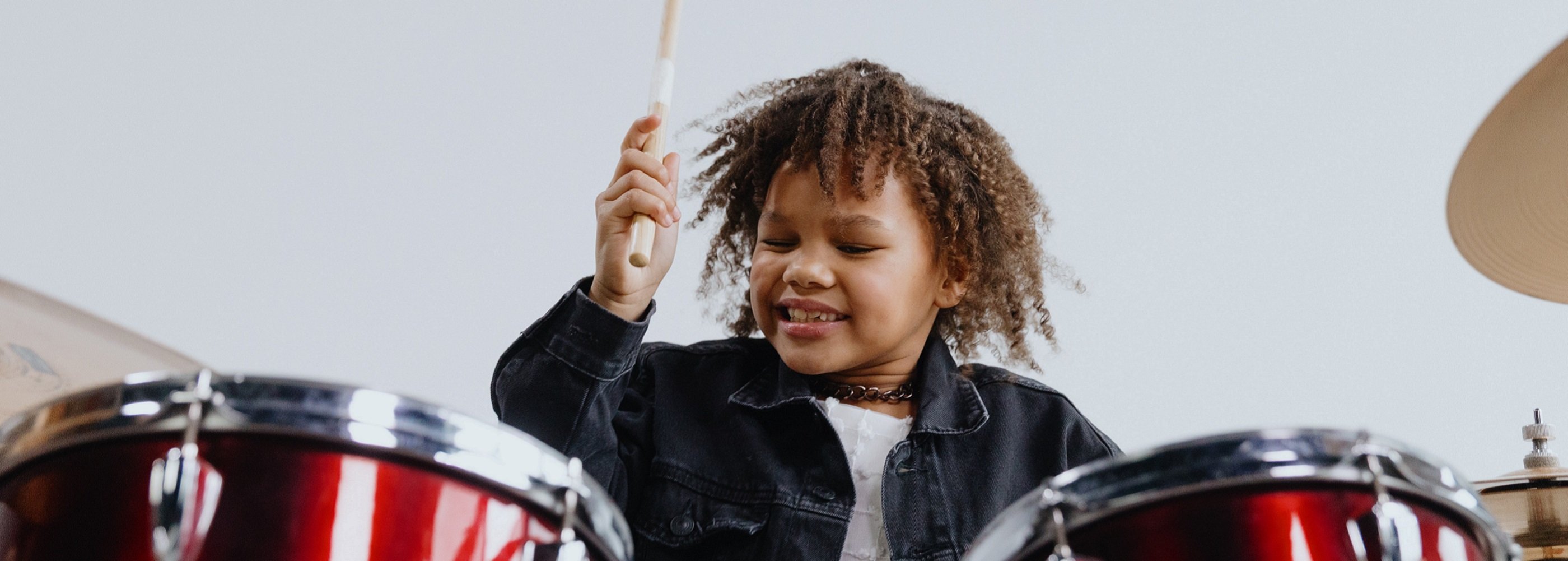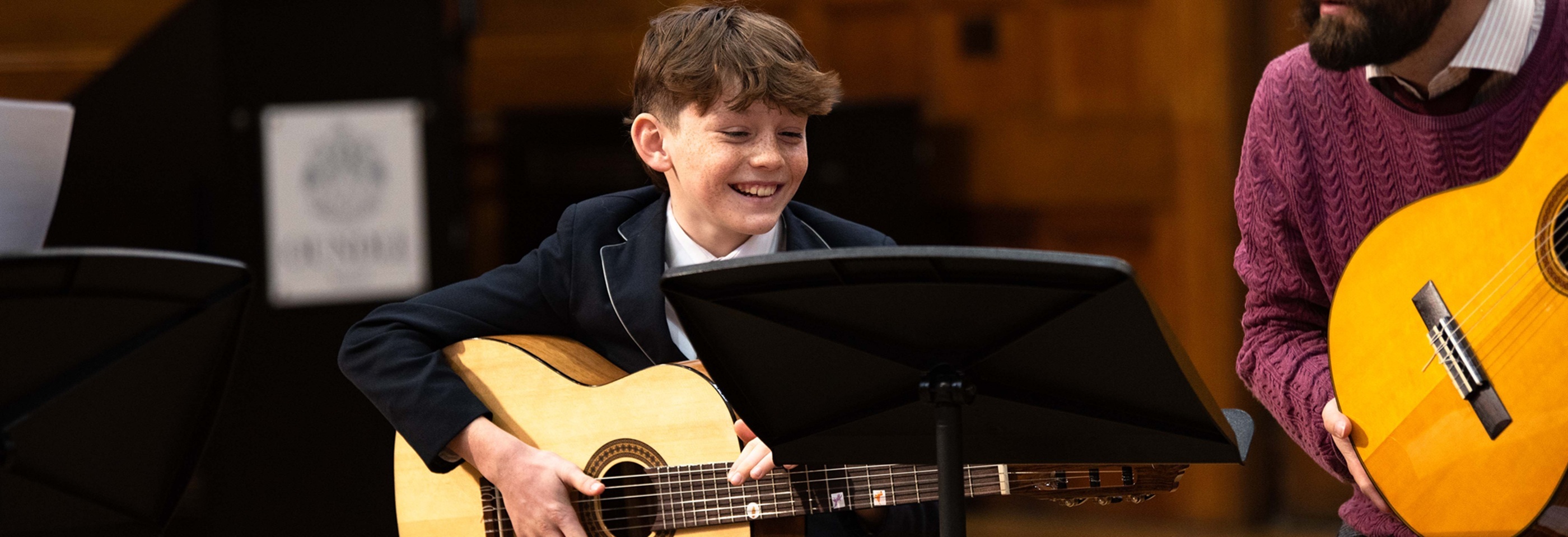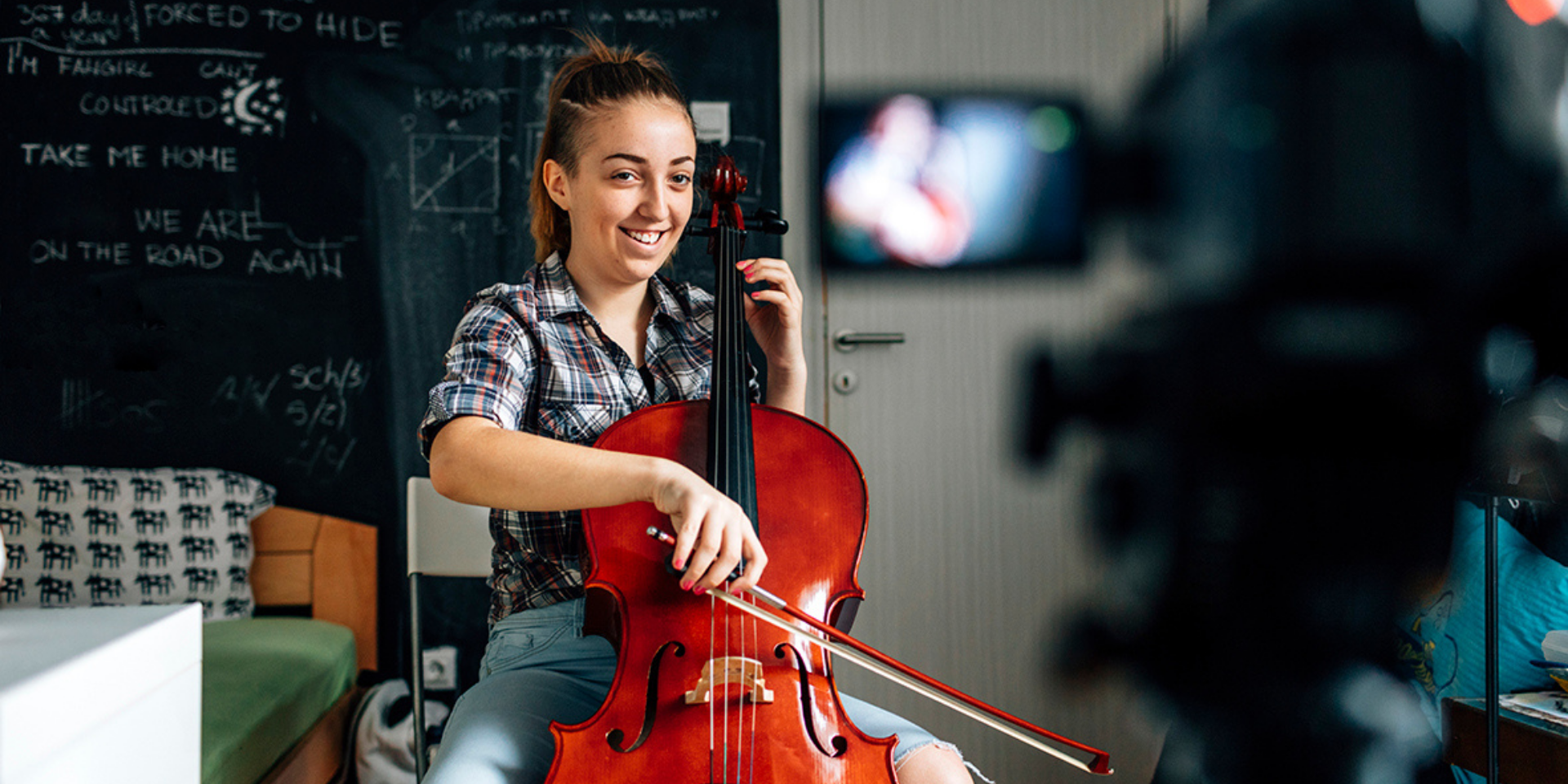
Personalising your exam performance
BY: Natalie Christopher
16 August 2023
There is something distinctly unique about the experience of taking a graded music exam; the closest scenario we might compare it to in our adult lives is an audition. Bringing a sense of ownership and musical identity is important to any musical performance, and Trinity's Music exams actively encourage this within the learning outcomes and assessment criteria. The breadth of choice and flexibility, within both the exam structure and repertoire, presents the opportunity for candidates to personalise their Trinity exam experience, to make it feel as authentic to them as any performance, which we will explore in this blog.
What style of exam best suits them?
Classical & Jazz or Rock & Pop? Face-to-face or digital? There are more choices than ever for students preparing to take a Trinity exam and, from July 2023, the options for Classical & Jazz digital exams have been extended even further as candidates are given the choice of either the Technical or Repertoire-only pathways:
Technical pathway - perform repertoire pieces, as well as technical work, and receive a mark for the overall performance
Repertoire-only pathway - where an additional piece is performed in place of the technical work and overall performance. This means that most candidates will play 4 pieces instead of 3; Grade 6-8 Singing candidates will be required to sing 5 instead of 4.
Providing a range of options to our candidates enables them to take ownership of their own progression pathway and, together, you can adapt this to their strengths, current circumstances (such as upcoming school exams) and ever-evolving musical interests. Further information about the Repertoire-only pathway for digital Classical & Jazz exams can be found on our website and our previous blog.
What repertoire would they like to play?
This may seem obvious as few teachers would dream of selecting repertoire for a candidate without discussing which ones they might enjoy playing or singing first; but, with our new approach to exam syllabuses meaning that each new one is valid indefinitely, and that repertoire lists are continually added to, there really is so much to explore. Take our upcoming Piano syllabus as an example: yes, you will find many of the classics still included but you will also have the option to explore music from stage and screen, jazz, Latin, pop and even computer game soundtracks!
And, of course, all of our Rock & Pop exams come with an own choice option. Simply check the instrumental syllabus for the parameters for the grade being taken to make sure it meets the technical requirements.
Are they a budding composer?
Even with a broad range of existing repertoire to choose from in an exam, some candidates relish the opportunity to perform something they have written themselves. Incorporating an own composition can be a great way of developing wider musicianship skills (improvisation, aural perception, music theory), as well as equipping the candidate with a piece for their exam that they really connect with and be proud to play. Parameters for own compositions can be found in the relevant Classical & Jazz or Rock & Pop syllabus for the grade being taken.
What atmosphere would they like to create for their exam?
Considering your stagecraft (ie the overall presentation of your performance) is where a musician's personality can really shine through. It takes into account all of the elements of a theatrical performance - staging, costume, movement - to create an ambiance for the audience. In the context of a music exam, this might not seem especially applicable, particularly if logistics dictate where and when an exam must take place; however, that does not mean to say that bringing your personality into the exam room is inappropriate or unwelcome either. You therefore may want to consider discussing the following with your students:
- How will they prepare for their exam? Having their pages marked, paperwork gathered in order, a bottle of water to hand, spare equipment (such as reeds, drumsticks, plectrums, strings), etc. will help them feel ready, overcome any small hiccoughs quickly, and enable them to focus on the performance they want to give.
- What do they want to wear? Again, changing outfit ahead of an exam might not always be feasible and that's fine - we're not here to assess how you are dressed - but it is worth giving some thought to. What we wear can have a big impact on our mood, as well as set the tone for the audience too, so, if dressing up is going to help the candidate create the sense of occasion they need to get 'into the zone', or donning a bandanna is going to help them channel their inner rock star, then go for it!
- What movement and gestures might be appropriate? This typically applies to singers who might want to move around the performance space a little to enhance the communication of the song they are performing, but it might also be considered for other instruments too. If a candidate does want to incorporate some movement into their exam, it is important that this doesn't impede the musical performance, that it is musically appropriate, and that, if taking a digital exam, they stay in shot at all times.
- Where would they like to perform? If submitting a digital exam, there is some flexibility in where the exam is recorded. Would they like to record at home where they can create a relaxed atmosphere, or would they like the opportunity to film at a venue with a stage? As long as the sound quality is good and the examiner has sufficient view to make their assessment, it is up to them.
Have fun!
Exams can be a nerve-wracking experience but it's important to remember that the examiners are on the candidates' side - they not only want to see a good performance, but someone who is enjoying themselves and engaged with what they are playing!
Photo by cottonbro studio on Pexels
Related posts
BY: Guest Writer


.jpg)

Comments & Replies